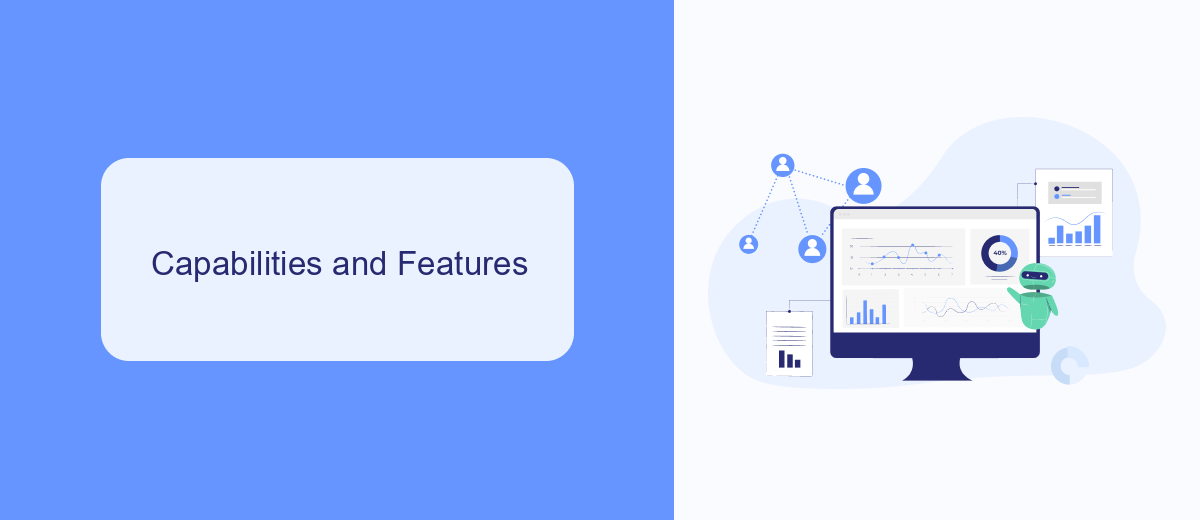When it comes to automation testing tools, UiPath and UFT (Unified Functional Testing) are two prominent names in the industry. Both offer unique features and capabilities, catering to different needs and preferences. This article aims to provide a comprehensive comparison of UiPath and UFT, helping you make an informed decision on which tool best suits your automation requirements.
Introduction
In today's rapidly evolving technological landscape, businesses are constantly seeking efficient tools to streamline their operations. UiPath and UFT (Unified Functional Testing) are two prominent automation tools that cater to different aspects of business processes. While UiPath focuses on robotic process automation (RPA), UFT is primarily designed for functional and regression testing of software applications.
- UiPath: Specializes in automating repetitive tasks, enhancing productivity, and reducing human error.
- UFT: A robust tool for comprehensive testing of software applications, ensuring quality and reliability.
- SaveMyLeads: Facilitates seamless integration between various services, enhancing the capabilities of both UiPath and UFT.
Choosing between UiPath and UFT depends on the specific needs of your organization. UiPath is ideal for automating business processes, while UFT excels in ensuring the quality of software through rigorous testing. Integrating these tools with services like SaveMyLeads can further optimize workflows, providing a comprehensive solution for both automation and testing needs.
Capabilities and Features

UiPath offers a comprehensive set of capabilities designed for end-to-end automation. It includes features like attended and unattended automation, robust debugging tools, and a user-friendly drag-and-drop interface. UiPath also excels in integrating with various third-party services and applications, making it easier to automate complex workflows. For instance, services like SaveMyLeads can be seamlessly integrated to streamline lead management processes, enhancing overall efficiency.
On the other hand, UFT (Unified Functional Testing) is primarily focused on functional and regression testing. It supports a wide range of applications and environments, including web, mobile, and desktop. UFT's advanced scripting capabilities allow for detailed test automation, and its integration with other Micro Focus tools provides a cohesive testing ecosystem. While UFT is more specialized in testing, its extensive feature set ensures thorough and reliable test coverage.
Ease of Use and Learning Curve

When comparing UiPath and UFT in terms of ease of use and learning curve, both tools offer distinct advantages. UiPath is known for its user-friendly interface, which allows even non-developers to create automation workflows with ease. Its drag-and-drop functionality and extensive library of pre-built activities make it accessible to beginners.
- UiPath: Intuitive drag-and-drop interface, extensive documentation, and community support.
- UFT: Requires more technical knowledge, but offers powerful scripting capabilities for advanced users.
While UFT provides robust features for experienced testers, its steep learning curve can be a barrier for newcomers. On the other hand, UiPath's simplicity and comprehensive resources, such as tutorials and forums, make it easier for users to get up to speed. Additionally, services like SaveMyLeads can further streamline the integration process, enhancing the overall user experience for those utilizing UiPath in their automation projects.
Integration and Extensibility

When it comes to integration and extensibility, UiPath and UFT offer distinct capabilities tailored to different needs. UiPath provides a robust set of APIs and connectors that enable seamless integration with various third-party applications and services. This makes it easier for users to extend the functionality of their automation workflows without significant coding efforts.
On the other hand, UFT (Unified Functional Testing) primarily focuses on testing and integrates well with other Micro Focus tools. It also supports a wide range of protocols and applications, making it a versatile choice for comprehensive test automation across different environments.
- UiPath offers pre-built connectors for popular services like Salesforce, SAP, and Microsoft Office.
- UFT supports various protocols such as HTTP, HTTPS, and SOAP, enabling extensive test coverage.
- Both platforms provide extensive documentation and community support for custom integrations.
For those looking to streamline integrations further, services like SaveMyLeads can be invaluable. SaveMyLeads allows easy setup of automated workflows between different applications, enhancing the extensibility of both UiPath and UFT by simplifying the integration process.
Cost and Pricing
When comparing the cost and pricing of UiPath and UFT, it's essential to consider the different pricing models they offer. UiPath provides a flexible subscription-based pricing model, which includes various tiers tailored to different business needs, from small enterprises to large corporations. This allows businesses to scale their automation efforts without a significant upfront investment. Additionally, UiPath offers a free community edition, making it accessible for individual developers and small teams to explore and develop automation solutions.
On the other hand, UFT (Unified Functional Testing) by Micro Focus typically follows a more traditional licensing model, which can involve higher initial costs. UFT's pricing often includes a perpetual license fee along with annual maintenance costs. This can be a substantial investment for smaller businesses. However, UFT offers robust integration capabilities with other Micro Focus tools. For companies looking to streamline their integrations, services like SaveMyLeads can be beneficial. SaveMyLeads helps automate lead data transfer between various platforms, potentially reducing manual effort and increasing efficiency.
- Automate the work with leads from the Facebook advertising account
- Empower with integrations and instant transfer of leads
- Don't spend money on developers or integrators
- Save time by automating routine tasks
FAQ
What are the primary differences between UiPath and UFT?
Which tool is better for integrating with other applications and services?
Can both UiPath and UFT be used for web application automation?
Which tool requires more programming knowledge to use effectively?
How do these tools handle updates and maintenance of automated processes or test scripts?
Use the SaveMyLeads service to improve the speed and quality of your Facebook lead processing. You do not need to regularly check the advertising account and download the CSV file. Get leads quickly and in a convenient format. Using the SML online connector, you can set up automatic transfer of leads from Facebook to various services: CRM systems, instant messengers, task managers, email services, etc. Automate the data transfer process, save time and improve customer service.

